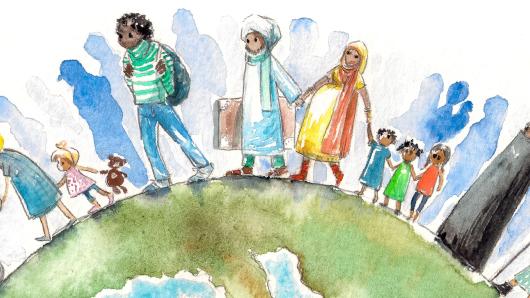Immigrant Mental Health

- Advanced

Identify culturally specific psychosocial factors that contribute to and exacerbate mental health issues for immigrants and their families.
Review how culturally specific groups are impacted by trauma, drug addiction, and domestic violence.
Identify methods to effectively assess and treat immigrant patients and their families who experience mental health needs as a result of post-migration stressors.
Utilize culturally sensitive knowledge and communication strategies to connect with and encourage greater patient engagement.
List strategies for partnering more effectively with medical interpreters to provide optimal care in a patient's native language.
Identify tailored area resources that patients and the care team can access and utilize.
As the number of immigrants arriving and living in the U.S. has significantly increased in the past decades, awareness of the challenges they face has also increased, including a significant need for mental health services and resources. It is therefore critical that mental health clinicians have a solid understanding of the cultural and psychosocial factors that immigrant populations experience, whether they be first- or second-generation. Building more specific knowledge about various immigrant groups, their unique cultural factors, and sociopolitical conditions of multiple countries of origin allows clinicians to implement sensitivity to an immigrant's unique migration process, post-migration stressors, and their ongoing acculturative process by considering the heterogeneity of immigrant experiences.
The mental health needs of immigrants span multiple developmental stages of life and various areas of life. Therefore, knowing the prevalence of mental health disorders across immigrant groups, the culturally specific manifestations of symptoms, and how to implement trauma-informed care is imperative. To effectively provide care for immigrant patients, clinicians can utilize a structural framework to inform clinical interventions that draw upon culturally sensitive, evidence-based treatments.
This new series will lay a basic foundation of the immigrant experience, explore common issues encountered by healthcare providers who work with immigrant populations, and provide suggested strategies to address patients' mental health needs. Participants will leave equipped with tools to improve patient-provider dialogue, increase therapeutic engagement, and promote better mental health outcomes for their immigrant patients. We welcome all mental health and primary care providers to join us! Identify culturally specific psychosocial factors that contribute to and exacerbate mental health issues for immigrants and their families.